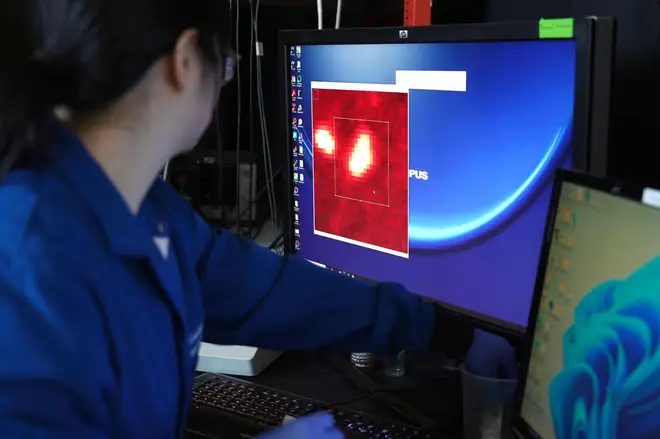
James O'Brien 10am - 1pm
9 January 2024, 08:16 | Updated: 9 January 2024, 08:18

The average plastic water bottle contains hundreds of thousands of tiny particles of plastic, far more than previously thought, according to new research.
A team of US scientists have discovered an average of 240,000 tiny particles - nanoplastics - in every litre of bottled water they tested.
Tap water contains an average of 5.5 particles per litre.
The nanoplastics found by this study are much smaller than microplastics previously detected in bottled water, and scientists fear the smaller particles can accumulate in people’s vital organs - with unknown implications for health.
Read more: Councils set to spend over £2bn housing homeless families this year
One common type found of nanoparticle was polyethylene terephthalate or PET.
Study co-author Professor Beizhan Yan, an environmental chemist at Columbia, said: “This was not surprising, since that is what many water bottles are made of.
“PET is also used for bottled sodas, sports drinks, and products such as ketchup and mayonnaise.
“It probably gets into the water as bits slough off when the bottle is squeezed or gets exposed to heat.”
The other common plastics found included polystyrene, polyvinyl chloride (PVC), and polymethyl methacrylate, all of which are used in various industrial processes.
The researchers looked at three unnamed US brands of bottled water and found tens to hundreds of times more nanoplastic particles than microplastics.
They counted between 110,000 and 370,000 particles per litre.
Professor Yan said: “I will avoid bottled waters.”
More than 70 per cent of people in Britain are already using refillable bottles rather than single-use plastic ones, according to the Refill campaign run by the environmental group City to Sea.